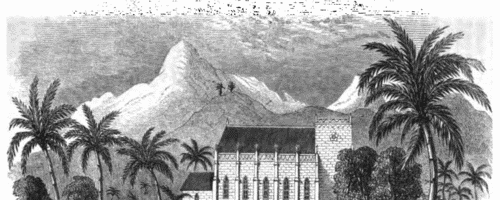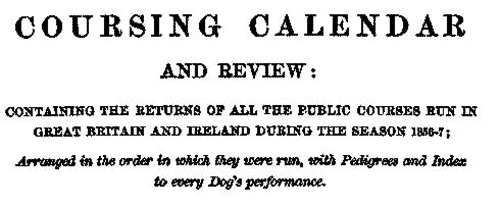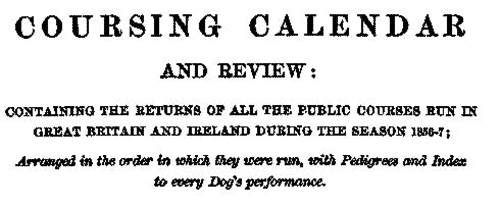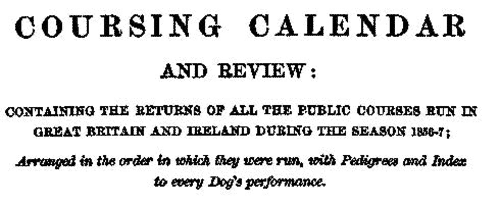Evan Surname Ancestry ResultsOur indexes 1000-1999 include entries for the spelling 'evan'. In the period you have requested, we have the following 168 records (displaying 131 to 140): Single Surname Subscription | | | Buying all 168 results of this search individually would cost £1,116.00. But you can have free access to all 168 records for a year, to view, to save and print, for £100. Save £1,016.00. More... |
These sample scans are from the original record. You will get scans of the full pages or articles where the surname you searched for has been found. Your web browser may prevent the sample windows from opening; in this case please change your browser settings to allow pop-up windows from this site. Missionary donations from London
(1855)
The Congregational and a number of other independent churches together formed the Evangelical Alliance, committed to promoting and supporting missions to the heathen. The areas chosen for their projects were Guiana, South Africa, India, the South Seas and China. The work of the missionaries was not only in preaching the Gospel, but also in translating the Bible into local languages, and establishing churches, schools and orphanages. Orphans and native teachers were often given the names of principal contributors or congregations back in Britain. In Britain the large amounts of money needed for this work were raised among the Congregational and independent congregations, arranged by auxiliaries for each county (although some contributions for each county might in fact come in from congregations and individuals in neighbouring areas); money was gathered by ministers, at special services, by supporters, and in missionary boxes. The accounts of all these contributions were published as part of a monthly magazine called the Evangelical Magazine. Each issue of the magazine carried obituaries of prominent members of the congregations; general articles on religion; reviews of newly-published religious books; home news, mainly about meetings of importance or interest by the alliance or in individual churches; and then a separate section called the Missionary Chronicle. The Missionary Chronicle was devoted to letters and reports from the missionaries; and concludes with a set of accounts of donations towards the missionary work. This is the index to the donations reported in the magazine, January to December 1855, from London.EVAN. Cost: £6.00.  | Sample scan, click to enlarge

| New South Wales Intestates
(1855)
The probate courts of the Australian colonies furnished returns of estates of deceased intestates, giving full name, colonial residence, supposed British or foreign residence of family (often unknown, or left blank), amount of the estate and how much had been disbursed and how. The date of death is often stated, and if by accident, suicide or crime. Names were carried forward from return to return until the estate was expended or exhausted. EVAN. Cost: £6.00.  | Sample scan, click to enlarge

| Hare Coursing Competitors at Belsay (1856)
Names of competitors from results recorded in the Coursing Calendar for September to December 1856; in which the meetings are listed chronologically, giving precise dates and the names of the presiding officers (stewards, judge, slipper, field officer, secretary). In each heat two greyhounds are raced, the winner from each pair proceeding to the next heat. Each dog is identified by its name and that of its owner. The parents of the winning dog are usually stated. The name of each competition is given with the number of nominations, the stakes and prizes. There are also occasional matches between particular dogs. These abbreviations are used: b. bitch; bd. brindled; be. blue; bk. black; br. l. broken leg; cr. cream; d. dog; dn. dun; dr. (with)drawn; dr. l. drawn lame; f. fawn; gr. grey; p. puppy; r. red; t. ticked; tn. tanned; w. white.
EVAN. Cost: £8.00.  | Sample scan, click to enlarge

| Hare Coursing Competitors at Middle (1856)
Names of competitors from results recorded in the Coursing Calendar for September to December 1856; in which the meetings are listed chronologically, giving precise dates and the names of the presiding officers (stewards, judge, slipper, field officer, secretary). In each heat two greyhounds are raced, the winner from each pair proceeding to the next heat. Each dog is identified by its name and that of its owner. The parents of the winning dog are usually stated. The name of each competition is given with the number of nominations, the stakes and prizes. There are also occasional matches between particular dogs. These abbreviations are used: b. bitch; bd. brindled; be. blue; bk. black; br. l. broken leg; cr. cream; d. dog; dn. dun; dr. (with)drawn; dr. l. drawn lame; f. fawn; gr. grey; p. puppy; r. red; t. ticked; tn. tanned; w. white.
EVAN. Cost: £8.00.  | Sample scan, click to enlarge

| Hare Coursing Competitors at Sundorne (1856)
Names of competitors from results recorded in the Coursing Calendar for September to December 1856; in which the meetings are listed chronologically, giving precise dates and the names of the presiding officers (stewards, judge, slipper, field officer, secretary). In each heat two greyhounds are raced, the winner from each pair proceeding to the next heat. Each dog is identified by its name and that of its owner. The parents of the winning dog are usually stated. The name of each competition is given with the number of nominations, the stakes and prizes. There are also occasional matches between particular dogs. These abbreviations are used: b. bitch; bd. brindled; be. blue; bk. black; br. l. broken leg; cr. cream; d. dog; dn. dun; dr. (with)drawn; dr. l. drawn lame; f. fawn; gr. grey; p. puppy; r. red; t. ticked; tn. tanned; w. white.
EVAN. Cost: £8.00.  | Sample scan, click to enlarge

|  Persons of standing recommending London police recruits
(1843-1857) Persons of standing recommending London police recruits
(1843-1857)
The Metropolitan Police Register of Joiners (MEPO 4/334) lists policemen joining the force 1 January 1843 to 1 April 1857 (warrant numbers 19893 to 35804). The register is alphabetical, in so far as the recruits are listed chronologically grouped under first letter of surname. It gives Date of Appointment, Name, Number of Warrant, Cause of Removal from Force (resigned, dismissed, promoted or died), and Date of Removal. Although the register was closed for new entrants at the end of 1842, the details of removals were always recorded, some being twenty or more years later. Those recruits not formerly in the police, the army, or some government department, were required to provide (normally) at least two letters of recommendation from persons of standing, and details of these are entered on the facing pages. Where a recruit was only recently arrived in the metropolis, the names and addresses of the recommenders can be invaluable for tracing where he came from. Those recruits not formerly in the police, the army, or some government department, were required to provide (normally) at least two letters of recommendation from persons of standing, and details of these are entered on the facing pages: the names in these are indexed here (the police recruits are indexed separately and not included here). Recruits transferred from other forces or rejoining the force did not normally need recommendations - in the latter case, former warrant numbers are given - but some recommendations are from police inspectors, even other constables. Recruits coming from the army sometimes have general military certificates of good conduct, but most often have a letter from their former commanding officer; recruits recommended by government departments (most often the Home Office) similarly have letters from the head of department. But the great majority of the names and addresses in these pages are of respectable citizens having some sort of personal acquaintance with the recruit. Where more than two recommendations were provided, the clerk would only record one or two, with the words 'and others'. Tradesmen are sometimes identified as such by their occupations; there are some gentry. Although the bulk of these names are from London and the home counties, a scattering are from further afield throughout Britain and Ireland. EVAN. Cost: £8.00.  | Sample scan, click to enlarge

|  Sailors and marines awarded the Baltic Medal
(1854-1857) Sailors and marines awarded the Baltic Medal
(1854-1857)
During the Crimean War, a British and French fleet entered the Baltic, and captured Bomarsund harbour and one of the Aland Islands (now part of Finland). Bomarsund is the sound between the islands and the Swedish island of Vardo; and at the fine harbour on Bomarsund, dominating the entrance of the Gulf of Bothnia, and indirectly that of the Gulf of Finland, the Russians had constructed a northern naval base, and this was destroyed in the attack. The British fleet taking part in the Baltic expedition comprised Her Majesty's ships Aeolus, Ajax, Alban, Algiers, Amphion, Archer, Arrogant, Basilisk, Belleisle, Blenheim, Boscawen, Bulldog, Caesar, Calcutta, Centaur, Colossus, Conflict, Cornwallis, Cossack, Cressy, Cruizer, Cuckoo, Cumberland, Dauntless, Desperate, Dragon, Driver, Duke of Wellington, Edinburgh, Esk, Euryalus, Exmouth, Falcon, Firefly, Geyser, Gladiator, Gorgon, Hannibal, Harrier, Hastings, Hawke, Hecla, Hogue, Imperieuse, James Watt, Leopard, Lightning, Locust, Magicienne, Majestic, Merlin, Miranda, Monarch, Neptune, Nile, Odin, Orion, Otter, Pembroke, Penelope, Pigmy, Porcupine, Prince Regent, Princess Royal, Pylades, Resistance, Retribution, Rhadamanthus, Rosamond, Royal George, Royal William, Russell, St George, St Jean D'Acre, St Vincent, Sphinx, Stromboli, Tartar, Termagant, Tribune, Tyne, Valorous, Volage, Volcano, Vulture, Wrangler and Zephyr. This is the medal roll of the naval and marine claimants who qualified for the Baltic Medal for service in 1854 to 1855. The medals were dispatched in batches from early 1857, the first batch being numbered B A 1, the next B A 2, &c.; then follows the destination (a place or, more usually, a ship) and the date of dispatch. Most of the medals had been sent by the end of 1857.EVAN. Cost: £8.00.  | Sample scan, click to enlarge

| Petitioning Creditors and Solicitors
(1857)
Principal creditors petitioning to force a bankruptcy (but often close relatives of the bankrupt helping to protect his assets): and solicitorsEVAN. Cost: £6.00.  | Sample scan, click to enlarge

|  British riflemen fighting in China
(1860) British riflemen fighting in China
(1860)
The China Medal was awarded to soldiers and sailors who took part in the prosecution of the war against the Chinese from 1856 to 1860. Separate clasps were awarded for men who had been in receipt of the China Medal of 1842; for being actually present at Canton on 28 and 29 December 1857, when that city was bombarded and finally captured; for being actually engaged in the operations which ceased with the first capture of the Taku Forts, 20 May 1858, and led to the Treaty of Tientsin; for being actually present at the capture of the Taku Forts 21 August 1860; and for being actually present before Pekin the day the gate of that city was given up to the allied (British and French) army, viz. on 13 October 1860. The 2nd battalion, the 60th (The King's Royal Rifle Corps) Regiment, based in Winchester, embarked for the Cape of Good Hope in June 1851, and after taking part in the Kaffir War, was moved to India, where it helped deal with the Mutiny. In 1860 the battalion was transferred to China. The regiment took part in the capture of the Taku Forts and that of Pekin.EVAN. Cost: £8.00.  | Sample scan, click to enlarge

| Victoria Intestates
(1861)
The probate courts of the Australian colonies furnished returns of estates of deceased intestates, giving full name, colonial residence, supposed British or foreign residence of family (often unknown, or left blank), amount of the estate and how much had been disbursed and how. The date of death is often stated, and if by accident, suicide or crime. Names were carried forward from return to return until the estate was expended or exhausted. EVAN. Cost: £6.00.  | Sample scan, click to enlarge

|
Research your ancestry, family history, genealogy and one-name study by direct access to original records and archives indexed by surname.
|













